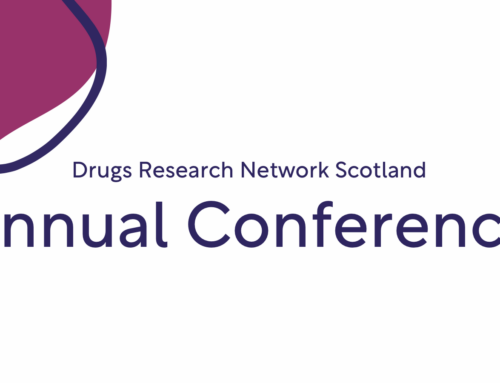Research Updates – W/C 19/3/22

The impact of COVID-19 on access to harm reduction, substance use treatment and recovery services in Scotland: A qualitative study
This paper described the impacts of the COVID-19 social and service restrictions on people who use drugs in Scotland. Findings include that effective and acceptable developments to services were shown to maintain and increase service provision. However, significant challenges remained for many individuals across the country. Access the paper here.
Vulnerability, risk and harm for people who use drugs and are engaged in transactional sex
This recently published study aimed to inform training development to aid the upskilling of the workforce to support people who use drugs and are involved in transactional sex. Through qualitative interviews the researchers found that there is a need for further information and guidance for services to reduce the risk of harm from drugs, sexual violence and unprotected sex, as well as the development of non-judgemental, trauma aware services. Access the full study here.
The PuP4Dads Feasibility Study
The final report for the Parents under Pressure (PuP) parenting programme for families with fathers receiving treatment for opioid dependence has been published. This research aimed to implement and test the feasibility and acceptability of the PuP programme for opioid-dependent fathers and their families, and to determine whether a full-scale evaluation could be conducted. Findings included that through the programmes therapeutic focus on fathers improved parental emotion regulation, there was improved understanding and responding to child’s needs, there was better multiagency working, and the programme was a good fit with practice ‘ethos’ and policy agenda. Access the full report here.
Assessing the feasibility, acceptability and accessibility of a peer-delivered intervention
This study aimed to use mixed-methods to assess the feasibility, acceptability and accessibility of a peer-delivered, relational intervention to reduce harms and improve health / well-being, quality of life and social functioning, for people experiencing homelessness and problem substance use. The findings established that such a peer-delivered intervention is acceptable, and feasible and accessible for, this population. There was a collective recognition amongst the study participants that the intervention was unique and highly valuable. The full study is available here.
Treatment of post-traumatic stress disorder and substance use disorder in adults with a history of adverse childhood experiences
This paper presents the findings of a systematic literature review and narrative synthesis assessing the effectiveness of psychological interventions on emotion regulation, post-traumatic stress disorder and substance use disorder symptoms. The review findings can be accessed here.
Examining the impact of COVID-19 associated control measures on interventions to prevent BBV among people who inject drugs
This study published in the Drug and Alcohol Dependence Journal examined the impact of the first wave of COVID-19 in Scotland on needle and syringe provision, opioid agonist therapy and blood-borne viruses (BBV) testing. Findings highlighted that COVID-19 impacted the delivery of BBV prevention services for people who inject drugs in Scotland. Access the full study here.
Depenalization, diversion and decriminalisation: A realist review and programme theory
Depenalization, diversion and decriminalization: A realist review and programme theory of alternatives to criminalization for simple drug possession’, seeks to showcase a realist programme theory to inform development and evaluation of alternatives to criminalization for the possession of illicit drugs. The paper highlights how alternative measures can reduce harms imposed by criminal justice processes without increasing drug use or related health and crime harms, but emphasises that this is dependent on specific combinations of contexts, mechanisms and outcomes. Access the full paper here.
An examination of the reliability and validity of the Recovery Capital Questionnaire
This paper published in the Drug and Alcohol Dependence Journal tests the internal consistency, stability reliability, criterion-related concurrent validity and content validity of the Recovery Capital Questionnaire (RCQ). The RCQ is a 36 item Likert response scale questionnaire which considers recovery capital across four domains: social capital (i.e., involvement in social rituals and routines), physical capital (physical health and wellbeing), human capital (i.e., resilience and decision making) and community capital (i.e., experiences of stigma). Read the full findings here.
Drug checking services for people who use drugs: A systematic review
This review identifies and synthesises literature on the influence of drug checking services on the behaviour of people who use drugs, the monitoring of drug markets by drug checking services, and outcomes related to models of drug checking services. Findings include that drug checking services appear to influence behavioural intentions, particularly when results are unexpected or drugs of concern. Barriers to the use of drug checking services included lack of concern, trust in drug sellers, lack of access to a drug checking service, and legal and privacy concerns. Access the full review here.
Mapping drug use, interventions and treatment needs in Scottish prisons
Colleagues from the University of Glasgow and University of Stirling bring us this literature review which maps the contemporary picture of drugs and Scottish prisons. A total of 85 documents, reflecting latest data available, were gathered using systematic review methods. Key conclusions include:
- A strong evidence base exists for high prevalence and patterns of drug use among prisoners
- Opiate use is common with resort to other substances such as New Psychoactive Substances also common
- Drug support services are centred around Opiate Replacement Therapy, but a range of medical and psychosocial services are available
- Services are not evenly spread across prisons, however Covid-19 has had an impact on this
Access the full review here.
Chronic pain, prescribed opioids and overdose risk
‘Chronic pain, prescribed opioids and overdose risk: a qualitative exploration of the views of affected individuals and family members’ is a newly published paper exploring how individuals prescribed opioids for chronic non cancer pain and family members perceive the issue of overdose in relation to opioid analgesics, and their views of overdose prevention and potential interventions. Read the full study findings here.
Including the multiply excluded: People who use synthetic cannabinoid receptor agonists
This paper highlights the findings of a mixed methods study which aimed to explore within-group stigma associated with the use of synthetic cannabinoid receptor agonists in a sample who accessed a support service in a large city in England. Read the full findings here.






